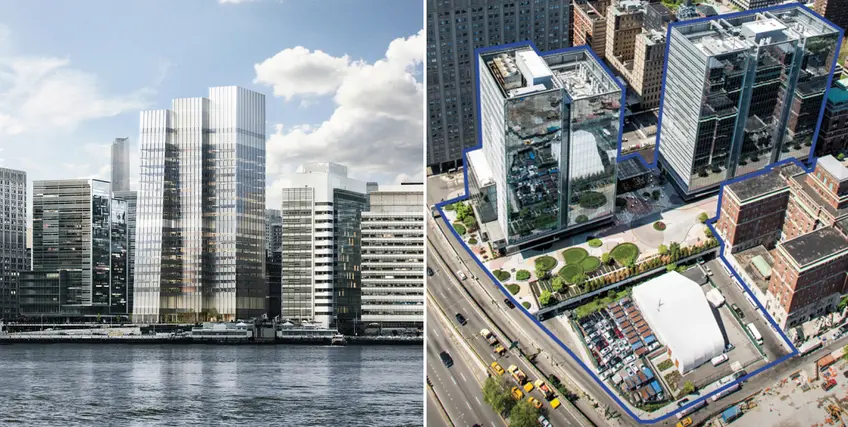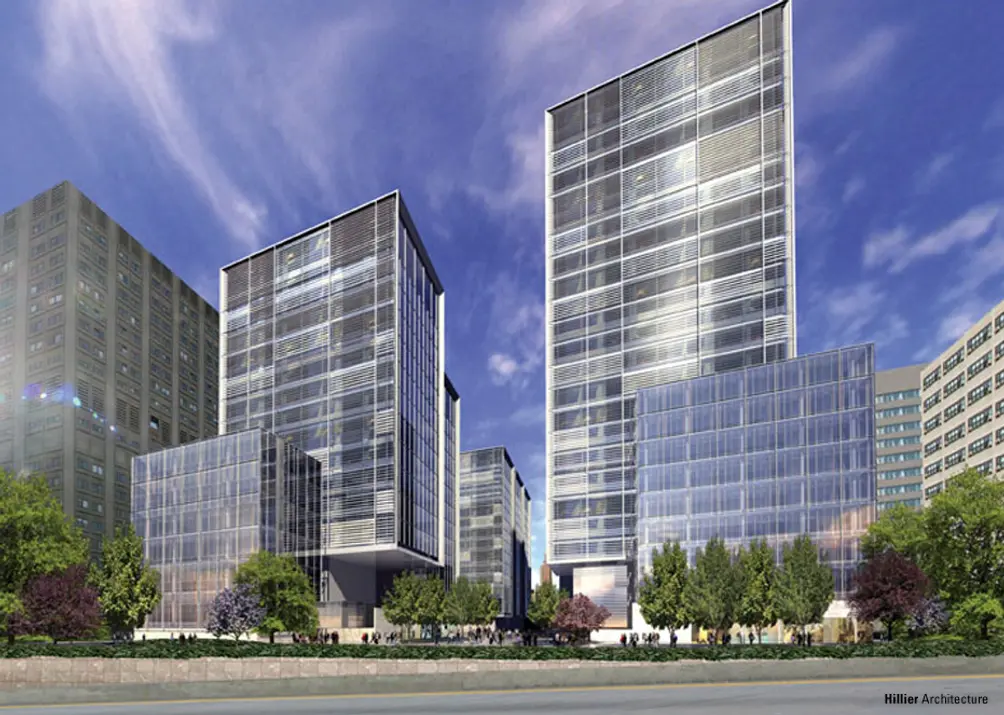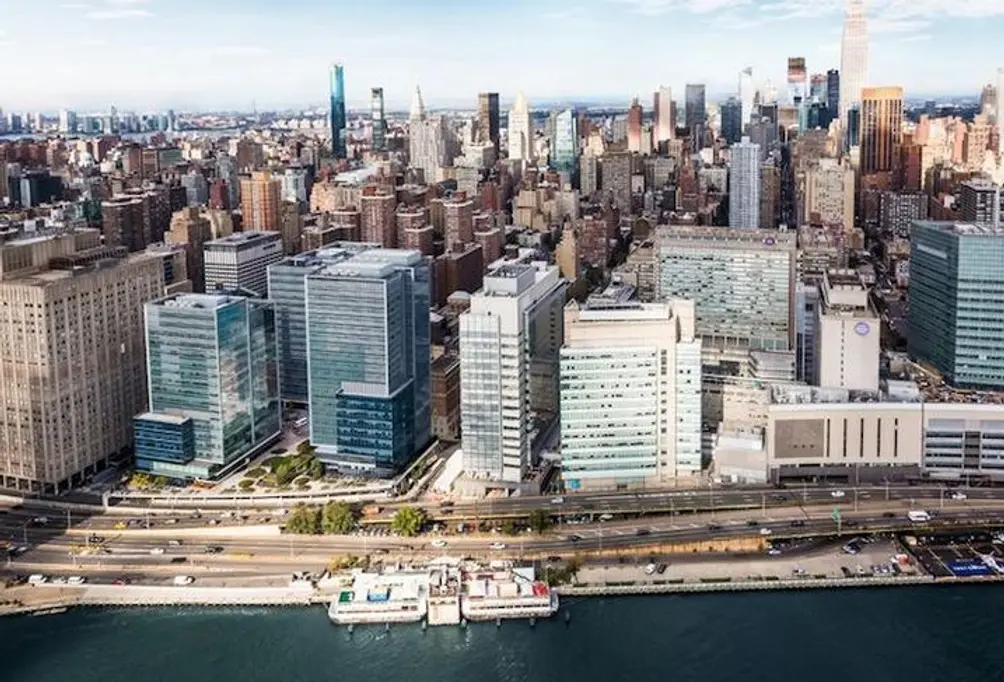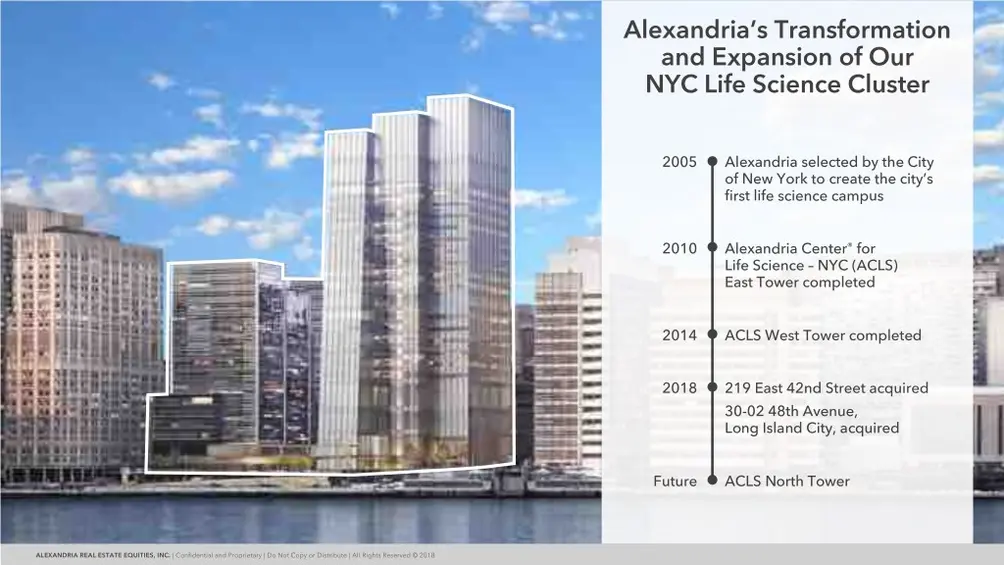 Alexandria Center for Life Science (Adamson Associates Architects)
Alexandria Center for Life Science (Adamson Associates Architects)
New York City is home to a large number of bioscience, pharmaceutical, technology, and research companies, yet has long grappled with a shortage of commercial laboratory space. However, the Alexandria Center for Life Science (“Alexandria Center”) has been changing that with an urban campus on the East River designed to foster scientific innovation. The east and west towers of offices and laboratories have been finished and operating for several years, and permits have just been filed for the northernmost and final tower at 500 East 30th Street.
The filings call for a 21-story building with labs and offices on floors 3-10, then 12-20. The cellar will be devoted to storage, and amenities will include a bike room, library, and attended lobby. Adamson Associates is the architect of record. The east and west towers are LEED Gold certified and Platinum-level Wired Certified, and the north tower will more than likely follow suit. Completion is estimated for 2022.
 All renderings via Alexandria Real Estate Equities
All renderings via Alexandria Real Estate Equities
 Previous rendering
Previous rendering
 According to permit filings, the new tower will rise 31 floors, 384 feet high
According to permit filings, the new tower will rise 31 floors, 384 feet high
When the north tower is complete, the Alexandria Center will have more than 1.1 million rentable square feet of office and laboratory space underpinned by state-of-the-art infrastructure, which includes an emergency generator for house/life safety systems. There is an on-site parking garage monitored by 24/7 security, but it is also easy to reach via bus, subway, or ferry.
It is located on an area of green space with a dramatic river esplanade and garden plaza, and is also home to Riverpark Farm, which provides food for Tom Colicchio restaurant Riverpark. When a quicker bite is in order, that's where casual cafe The Cube comes in. Apella, a digital conference center, is designed to be the science community’s new destination for corporate events, social events, and industry awards.
It is located on an area of green space with a dramatic river esplanade and garden plaza, and is also home to Riverpark Farm, which provides food for Tom Colicchio restaurant Riverpark. When a quicker bite is in order, that's where casual cafe The Cube comes in. Apella, a digital conference center, is designed to be the science community’s new destination for corporate events, social events, and industry awards.
 Entrance and lab space
Entrance and lab space
 Riverpark Farm via Crafted Hospitality
Riverpark Farm via Crafted Hospitality
“It is the city from which 118 Nobel laureates draw inspiration and in which over two dozen life science companies are started each year.” - Alexandria Center for Life Science
The news comes hot on the heels of Nature Index’s release of its Top 200 Science Cities. An invaluable resource for the scientific community, the database of research articles chooses its top cities based on the largest total number of articles and fractional count. The New York metro area topped the list of Top 20 Life Science Cities, came in second only to Beijing for Top 200 Science Cities, and ranked in the top five for Physical Sciences, Earth and Environmental Sciences, Corporate Science, and Chemistry.
The Alexandria Center represents both a rich history and a newly emergent bioscience corridor. It is rising north of Kips Bay’s historic hospitals and south of 708 First Avenue, where Solow Realty & Development is at the helm of the New York Life Sciences and Biotechnology Center. Across the river, a groundbreaking ceremony for Innolabs, a new life science facility, recently took place at 45-18 Court Square in Long Island City. And in between, Cornell Tech’s environmentally conscious campus, which includes the world’s largest Passive House building, is on Roosevelt Island.
 Map via Alexandria Real Estate Equities
Map via Alexandria Real Estate Equities

 6sqft delivers the latest on real estate, architecture, and design, straight from New York City.
6sqft delivers the latest on real estate, architecture, and design, straight from New York City.
